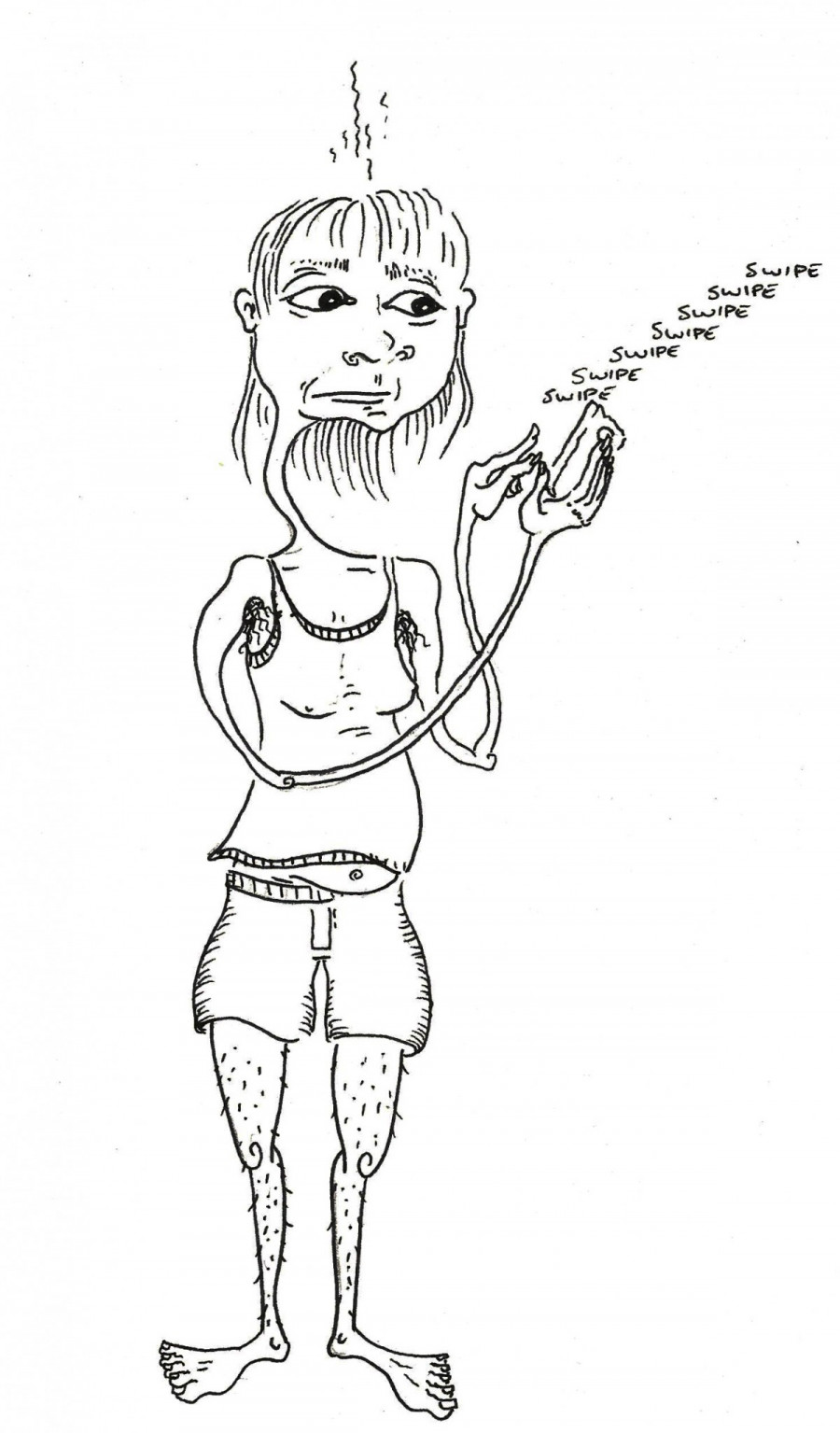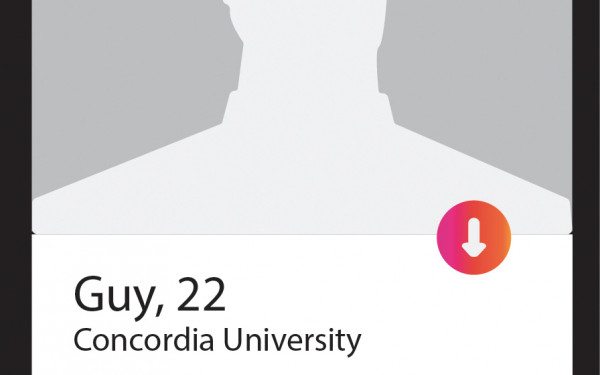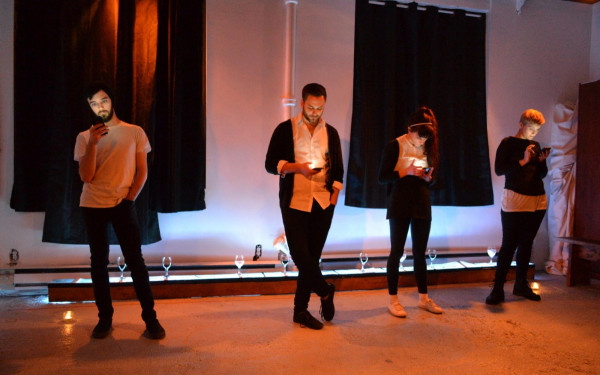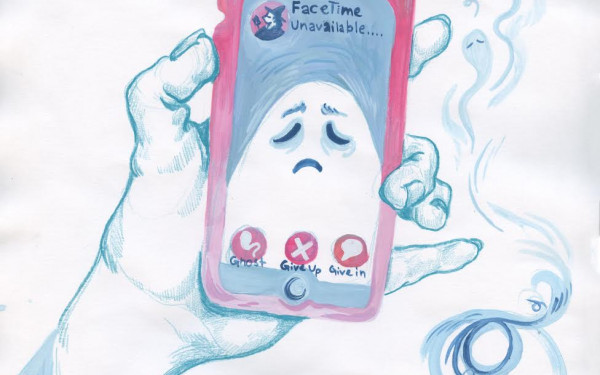The Stop-Gap App
Is Tinder All That We Crack It Up To Be?
I matched with Tim (name changed to keep his anonymity) within the first night of having Tinder.
We sent each other about six messages before he offered to take me out. I liked that he wanted to meet. I wasn’t interested in spending my days sending pointless messages to random guys.
“Don’t get too crazy about the first guy you meet,” said my friend, who was sitting slouched across the room, swiping away on her own Tinder account.
Tinder is a dating app that allows you to comb through hundreds of singles in your area. You can either swipe left on someone’s profile picture and never see their face again, or swipe right if you’re interested in them. Communication only opens if both parties swipe right on each other.
One of the reasons Tinder is so popular is because there’s a seemingly endless stream of singles in your area, which you can comb through anonymously.
“When we are anonymously browsing only, we are willing to search more openly,” said Jui Ramaprasad, Assistant Professor in Information Systems at McGill University. “For example, think about how we browse on Facebook, anonymously, and how that behaviour would change if we were browsing non-anonymously.”
Anonymity contributes to the casual nature of the app—no one will know if you’re talking to one match or 20 matches at a time. Matches become casually replaceable.
“Our preliminary research on online dating in the mobile context does show that interactions on a mobile platform are less inhibited women—that is, we do see women initiating conversations on the mobile platform moreso than in traditional online dating,” Ramaprasad explained about heterosexual interactions.
After a few more messages, Tim and I set a date for the weekend.
“Got anywhere in mind?” I said. “The tequila bar,” he replied back quickly. Ah, so 27-year-old Tim wanted to take me to drink tequila at night. Red flags, anyone?
I get it. Tinder is for sex. Since each profile provides only pictures, a name and an optional short biography, I shouldn’t expect any more than a quick hook-up. Still, I had faith in my fellow man. I heard stories from people who met their significant other online, or at the very least, have had good conversation. I had no expectations other than a pleasant talk.
After a 30-minute metro ride out to the middle of nowhere, I saw a guy that slightly looked like Tim’s profile picture waving to me across the intersection.
He explained that the Tequila Bar was closed and quickly added that the SAQ was still open.
“SAQ and chill?” he asked like a bad joke.
“SAQ and chill?” —_Tim from Tinder_
I laughed nervously and ignored the question, and asked if there were any other bars close by. Any place was better than his house, alone, with a bottle of cheap wine.
I was relieved to hear that there was a dingy bar a few streets away.
The bar was pathetic. Under the spotty florescent lights sat three old men at blue diner tables in an otherwise empty room. We played a game of pool and conversation was slow and awkward.
When leaving the bar, he insisted I come back to his place with him, “just for a bit.” I felt trapped and his efforts to get me to trust him by saying, “I’m not going to rape you” didn’t make me feel any better. “I’m the guy here, I don’t have to worry about dangerous girls or being raped. I get it!” he said.
Safety is a big factor to keep in mind when online dating. Although it applies to everyone, women have been most reported to be victims of sexual assault and/or stalking.
Concordia student Dahlia Bercovitch explained her own stalking experience with a guy she knew previously, and reconnected with on Tinder. After they matched, she said that’s when the uncontrollable wave of unwanted messages “every hour” started on the app and other social networks.
Eventually, she had to take steps to block him on all platforms.
“There are ways to make [Tinder] safe, but I didn’t feel safe at that moment,” Bercovitch said.
On Tinder, unlike other dating services, there’s no algorithm to help you find the perfect match. It’s just a face on a screen, because of this, Tinder is the closest to what it’s like meeting someone at a bar, when your first instinct to start a conversation with someone is purely based on their looks. But a lot of the time, the principles of dating are lost in the weeds of assumed sex.
“Research has shown that people are more disinhibited online,” said Ramaprasad. “There is a study that shows that people order pizza that is less healthy online, when they are anonymous, as opposed to when they order it face-to-face. We see the same sort of behaviour in online dating—that with anonymity at the search stage, viewing profiles, both men and women view significantly more profiles. That is, they are disinhibited.” When anonymity is lost during the messaging stage, appropriateness is harder to observe.
“It’s a bit hard to say in this context as people cannot message or comment anonymously to one another. However, there is research that says anonymous posting leads to bullying and other inappropriate behaviour in online forums,” Ramaprasad said.
At Tim’s house, we played video games as I sat on the couch, my jacket still on. He repeatedly offered to smoke with him, told me about his experiences being catfished on Tinder, and asked about my virginity.
I asked him to drive me to the metro and thankfully, he obliged. As we approached the metro, his voice broke the silence: “this is an odd question, but do you wanna make out a little when I park?” I declined and laughed uncomfortably, jumping out of the car.
Tinder is so connected with the idea of quick sex, having any expectation for something different is perceived as misleading and unfair to the other person.
I’m not knocking Tinder or its users. If you’re up for a relationship like that, it’s a great starting place, but the most important thing to remember is you’re talking to an actual person, not just a face on an app to swipe left or right.







